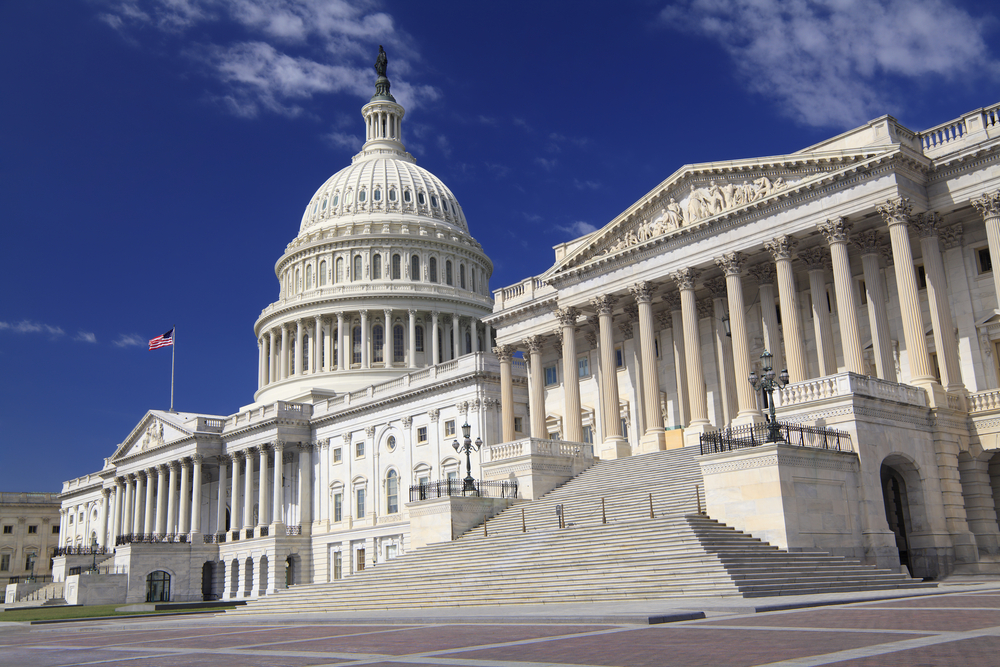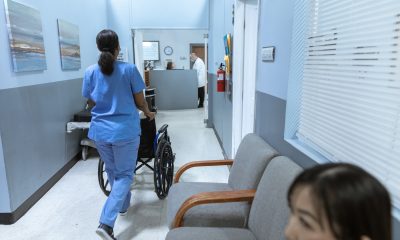American News
With Democratic support, Senate eyes rollback of banking law
WASHINGTON — Ten years after a financial crisis rocked the nation’s economy, the Senate is poised to pass legislation that would roll back some of the safeguards Congress put into place to prevent a relapse.
The move to alter some key aspects of the Dodd-Frank law has overwhelming Republican support and enough Democratic backing that it’s expected to gain the 60 votes necessary to clear the Senate. Several Democratic lawmakers facing tough re-election races this year have broken ranks with Minority Leader Chuck Schumer, D-N.Y. and Sen. Elizabeth Warren, D-Mass.
The legislation would increase the threshold at which banks are considered too big to fail. Such banks are subject to stricter capital and planning requirements, and lawmakers are intent on providing them relief in hopes that it will boost lending and the economy.
Banks have long complained about the cost of complying with the many requirements of Dodd-Frank. Under the Senate bill, some of the nation’s biggest banks would no longer have to undergo an annual stress test conducted by the Federal Reserve. The test assesses whether a bank has enough capital to survive an economic shock and continue lending. Dozens of banks would also be exempted from making plans called “living wills” that spell out how the bank will sell off assets or be liquidated in a way that won’t create chaos in the financial system.
The legislation increases from $50 billion to $250 billion the threshold at which banks are considered critical to the system. The change would ease regulations on more than two dozen financial companies, including BB&T Corp., Sun Trust Banks Inc. and American Express.
Opponents of the bill argue that the same banks getting regulatory relief through the Senate bill also got about $50 billion in taxpayer-funded bailouts during the financial crisis. They note Countrywide Financial, which was at the centre of the mortgage crisis, was smaller than some of the banks targeted for relief now.
“There is no reason at all to roll back the rules on these big banks so they can pad their pockets even more – and cut them loose to take on wild risks again,” wrote Warren, who before joining the Senate led a congressional oversight panel for the bailout programs.
The Senate bill emerged from lengthy negotiations between Sen. Mike Crapo, the Republican chairman of the Senate Committee on Banking, Housing and Urban Affairs, and Democratic members on the committee. The ranking Democrat, Sen. Sherrod Brown of Ohio, said the changes go too far and he walked away.
But many Democrats stayed on board, and the bill has 13 Republican and 13 Democratic or independent co-sponsors, a rare level of bipartisanship for substantive legislation in the current Congress. By contrast, the House effort to roll back Dodd-Frank didn’t generate a single Democratic vote in support.
Commercial banks are major players on Capitol Hill, spending $66 million on lobbying Congress last year and $44 million on federal election campaigns in the previous election cycle, according to the Center for Responsive Politics, which tracks campaign spending. About two-thirds of the money went to Republican campaigns and about a third to Democratic campaigns.
This cycle, commercial banks have targeted their campaign donations to major players on committees with jurisdiction over banking issues, including the incumbent senators in competitive races: Among the top 10 recipients of commercial bank donations are Democratic Sens. Heidi Heitkamp of North Dakota, Joe Donnelly of Indiana, Jon Tester of Montana and Republican Sen. Dean Heller of Nevada. All four are co-sponsors of Crapo’s bill.
Crapo said the Federal Reserve will have the authority to tailor tougher capital and liquidity requirements for individual banks when it believes it’s necessary. For the others, compliance costs should drop.
“It’s going to free up a phenomenal amount of capital in this country that right now for no good reason, no safety or soundness reason, is being held back,” Crapo said.
The Federal Reserve conducts annual stress tests of banks with $50 billion or more in assets. Under the Senate bill, banks with under $100 billion in assets won’t have to undergo the Fed’s yearly test. Banks with between $100 billion and $250 billion in assets will be exempted from the yearly stress test after 18 months. The Federal Reserve will have authority to accelerate the exemption or extend it.
Federal Reserve Chairman Jay Powell seemingly endorsed that approach when he appeared before the Senate’s banking committee last week.
“I think it gives us the tools that we need to continue to protect financial stability,” Powell said of the bill.
The largest dozen or so banks in the country will still have to undergo the yearly test.
The bill also exempts banks with less than $10 billion in assets from what is referred to as the Volcker Rule, which limits banks from using their own capitol to trade the markets.






















